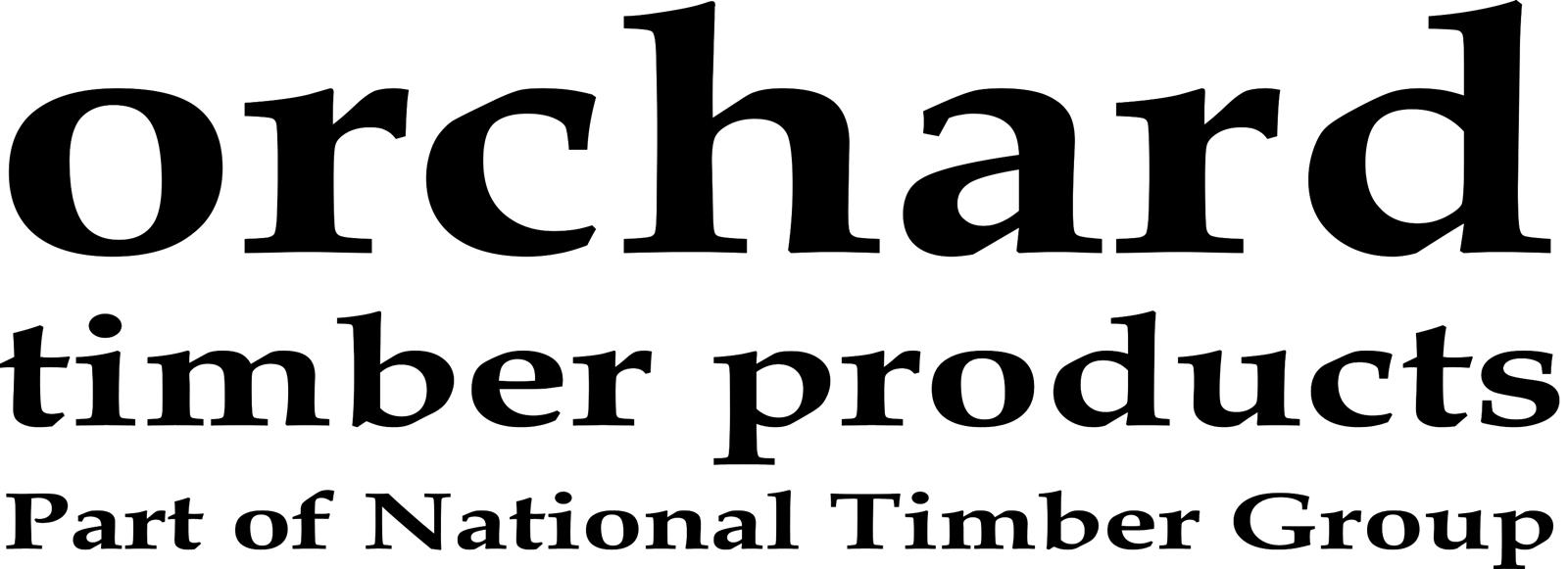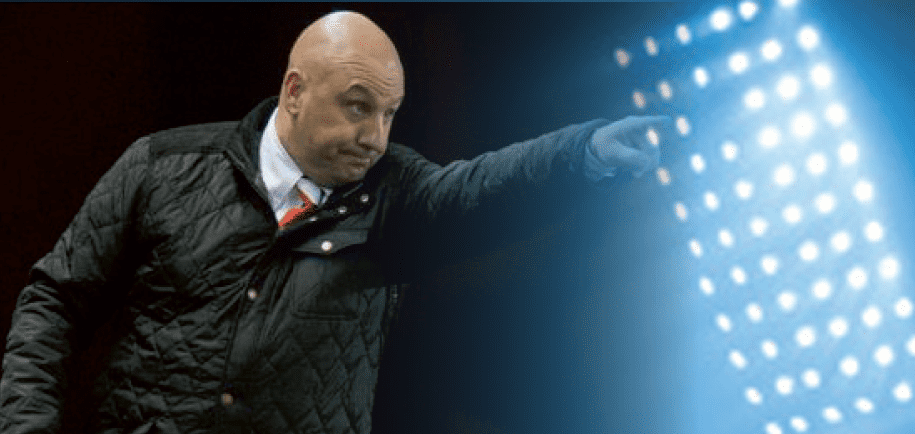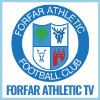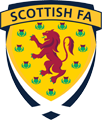Official Website
Of The Loons
Bollan The Builder
If you have taken part in a football quiz in recent years the chances are that you will have scribbled down the name Gary Bollan for at least one of the answers.
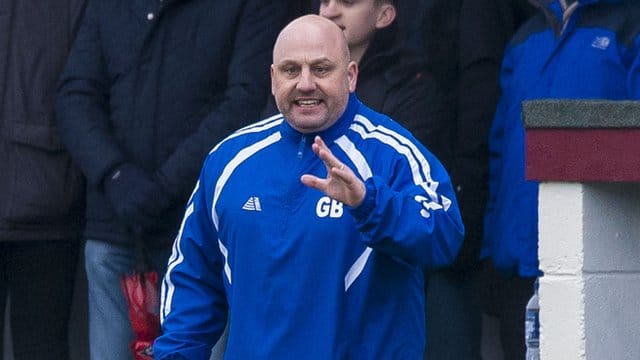 Which Forfar manager made an appearance in a World Cup Final? Who narrowly missed out on a full Scotland cap due to the ‘one team in Tallinn' incident? Who set a record in representing Scottish clubs in Europe? Such is the list of Gary's achievements at every level of the game, the ability to recall his name often separates the part-time from the full-time football aficionados.
Which Forfar manager made an appearance in a World Cup Final? Who narrowly missed out on a full Scotland cap due to the ‘one team in Tallinn' incident? Who set a record in representing Scottish clubs in Europe? Such is the list of Gary's achievements at every level of the game, the ability to recall his name often separates the part-time from the full-time football aficionados.
Whether or not his time at Forfar will lead to new sport trivia questions, Gary is confident that he has the answers to the latest conundrum facing the Loons as they fight for League One survival. "When I came to Station Park I knew the challenge which lay ahead – keep Forfar in this league and then build the squad up to compete for the promotion play-offs next season.” He continues, "Despite a number of excellent performances including against Cowdenbeath and Ayr it remains a tough challenge. To get us out of this predicament we need to win whether it is ugly or pretty. I'd rather win pretty as we did against Ayr but it's my job to ensure we get the points to climb away from the bottom however we can. I believe we can do it.”
Gary took up the Forfar manager's position on 21 December 2015 following the departure of Dick Campbell. He faced an immediate baptism, if not of fire, then of rain and gales in his first match against league leaders Dunfermline. This match came hard on the heels of first choice keeper, Rab Douglas, leaving the club. "When I agreed to take the manager's job the Chairman asked me to call a few of the senior players including Rab. We had a good chat and there was nothing personal in it against me but in the circumstances Rab thought it was best for him to hang up his gloves. I had to respect his wishes, wish him well and immediately find a new goalkeeper for my first game in charge”.
The ability to adapt quickly to football's shifting sands is something that Gary has had to learn over a footballing career spanning almost four decades. This adaptability was evident even at the tender age of six when he went along with an older cousin to a training session at Fairmuir Boys Club in his home city of Dundee. "I was quite big for my age and the manager asked if I wanted to have a kick about so I mixed in with the other boys who were all much older. The manager seemed to be impressed and when he asked my age I think he was a bit surprised I was so young, but with my parents backing I went on to play for the U-10s from the age of six”. Gary also played for his primary school, Mossgiel and Linlathen High School, and was part of the Dundee Schools' select team for three years lining up alongside a future Scottish internationalist and Dundee United player Christian Dailly as well as former Loon Tony McAuley. During this time the Dundee team won the Schools' Scottish Cup twice and were beaten finalists in the other year. This was the start of a career of notable achievements for Gary.
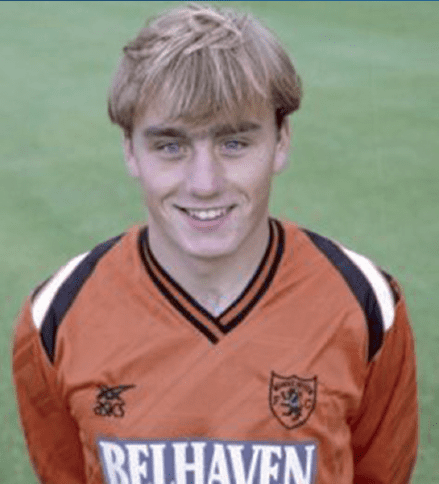
Gary, a defender for all his career, went onto play 72 times for United scoring four goals. He made his debut at Ibrox in a mid-week game in April 1991 in a case of being in the right place at the right time. "Jim (McLean) used to get a couple of the young lads to travel with the first team squad to carry the hampers and help with the preparation for the first team and I was one of them that night. When we got to Ibrox Jim named me as a substitute, which came as a massive surprise but it obviously was a really good surprise. I got my first start about a week later against Hearts at Tannadice. I think my first derby goal came in my second full season. I played in the UEFA Cup for United which I had always wanted to do from when I was a boy. But the best moment was when I first stepped onto the Tannadice turf - having stood on the terracing as a boy and then being part of the first team was something I'll never forget.”
Although he did not make it onto the pitch – he was on the bench - United's Scottish Cup win against Rangers in 1994 was another high point for Gary who was part of the squad during the historic cup run. "To be there on the first occasion the club won the Scottish Cup, having endured defeat so many times, was a great experience.” The manager at that time was Ivan Golac. "He certainly was more relaxed than Jim and so training was not so intense. We spent the day before the final at Hamilton Races and everyone was calm and looking forward to the final. And it helped to boost our confidence that Ivan was always telling us that we were going to win!” The goalscorer that day was of course former Forfar player, Craig Brewster, with the goal set-up by Gary's team mate from his schooldays, Christian Dailly.
Stories of Jim McLean abound and Gary no doubt has his share but he is clear that the grounding he received at United was hugely important to his career and none more so than now as a manager and coach. "Jim was probably a genius of the game … to stay at United for so long when he was so good he could have moved anywhere in the world at that time showed his loyalty. I wouldn't want to say that I took too much of his man management tips but, looking back I did learn a great deal from him about the game.”
Gary would return to United in 2003 for a short period. He recalls signing under Paul Hegarty on the Tuesday, playing against Celtic on the Wednesday and then the following day Paul was sacked after which Ian McCall was appointed. "Paul was an absolute gentleman and I am grateful to him for taking me back to United. Ian made me captain which was another ambition of mine and a great honour.”
Around the time of his first stint at Dundee United in 1989 Gary was playing not only in a World Cup competition but in an actual World Cup Final when Scotland reached the showpiece of the FIFA U-16 World Championships (now called the U-17 World Cup). In this tournament the young Scots, under the watchful eye of Craig Brown, beat the likes of East Germany and Portugal en route to the final which would see Gary and his teammates playing in front of 51,000 at Hampden Park. The Scots may have been on the losing end of a penalty shoot-out against Saudi Arabia but many still believe they were the real winners. Whether or not there was any truth in the rumours about their opponents' apparent disregard for the competition's upper age level, the late Ernie Walker, at the time the SFA Secretary, was still incensed 20 years later. At the reunion for the U-16 squad in 2009, Ernie claimed one of the Saudi players was married with three children during the finals but yet he was supposed to be 16 or under! Gary was of a similar opinion. He gives a wry laugh ‘I think the Saudis were under 31s never mind U-16s'
While that disappointment still lingers Gary is proud to have represented Scotland at every age level other than the senior squad. He regrets that gap in his international resume which he puts down to Scotland's infamous World Cup qualifying game against Estonia in Tallinn in 1996. Gary was part of the squad but the match only lasted a few seconds with Billy Dodds kicking off and John Collins taking one touch before the match was brought to a halt to the Tartan Army chorus of There's only one team in Tallinn. The Estonian team had chosen not to turn up at the Kadrioru Stadium due to a dispute over its floodlights. "I was capped at every level, U-15 School Boys for three years from the age of 13, U-16, U-21 and I just missed out on a senior cap due to the Estonia game that never was which is the only regret that I have on the international side of things.” He is one of Scotland's most capped players at U-21 level, pulling on the national jersey 17 times from 1992-1995 and scoring one goal.
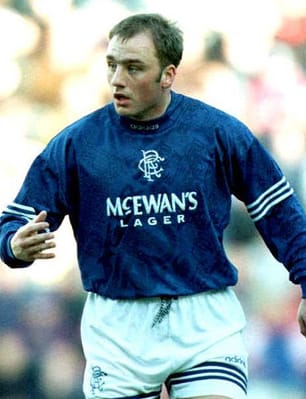 Back to club football and Gary was signed by Walter Smith for Rangers in 1995 spending three years with the Ibrox side. His playing opportunities were curtailed for much of that time due to injury, although Gary admits he may not have played many games even if he had been fit due to the standard of player at Rangers at the time. "There was very fierce competition for first team places. There were many world-class players at Rangers at the time including Sergio Porrini, Jonas Thern and Jorg Albertz. The positive side of that was that I never felt under the intense scrutiny that many players face playing for one of the Glasgow teams. The team was full of big names such as Paul Gascoigne, Brian Laudrup and Rino Gattuso who attracted the media attention and so I managed to stay under the radar.” During his time at Rangers Gary enjoyed the glamour of Europe playing in the UEFA Champions League against Juventus, Steaua Bucharest and Borussia Dortmund.
Back to club football and Gary was signed by Walter Smith for Rangers in 1995 spending three years with the Ibrox side. His playing opportunities were curtailed for much of that time due to injury, although Gary admits he may not have played many games even if he had been fit due to the standard of player at Rangers at the time. "There was very fierce competition for first team places. There were many world-class players at Rangers at the time including Sergio Porrini, Jonas Thern and Jorg Albertz. The positive side of that was that I never felt under the intense scrutiny that many players face playing for one of the Glasgow teams. The team was full of big names such as Paul Gascoigne, Brian Laudrup and Rino Gattuso who attracted the media attention and so I managed to stay under the radar.” During his time at Rangers Gary enjoyed the glamour of Europe playing in the UEFA Champions League against Juventus, Steaua Bucharest and Borussia Dortmund.
Although he did travel over the border, Gary never actually sampled English football, a loan deal at Wolves falling through in 1998 just as he was about to sign the paperwork with Mark McGhee's side. St Johnstone had made Rangers an offer for Gary and so the car was turned around and he headed back up the road to Perth where he would stay for three years playing over 100 games and scoring eight goals.
The man who took Gary to McDiarmid Park was his former coach at Dundee United and boyhood hero, Paul Sturrock. Although the start to Gary's time at St Johnstone was not ideal. A few days after being signed he broke his foot while playing in a reserve fixture and missed the rest of the season including not being able to make his debut against none other than Dundee United. By the following season Gary was back to full fitness but now playing under another manager, with Paul Sturrock having left to return to United, and Sandy Clark taking over in September 1998. This proved to be Gary's most successful time as a player and for the club itself with St Johnstone finishing third in the SPL behind Rangers and Celtic in 1999 and in the same season runners up in the League Cup Final (to Rangers) and reaching the semi-final of the Scottish Cup again losing out to Rangers. Gary also experienced yet more European football while with the Perth team playing in the UEFA Cup.
In 2001 Gary made the move to Livingston under the managerial gaze of one of the legends of the Scottish game, Jim Leishman. During this time the West Lothian side came third in the SPL behind Celtic and Rangers in 2002 and in doing so qualified for the UEFA Cup for the first time, quite an achievement in the club's first season in the top league. For Gary this would complete the quiz quartet question - he is the only Scottish player to play for four Scottish clubs in European competitions. This further success as a player signalled things to come a few years later when Gary was in the manager's seat leading Livingston to success again.
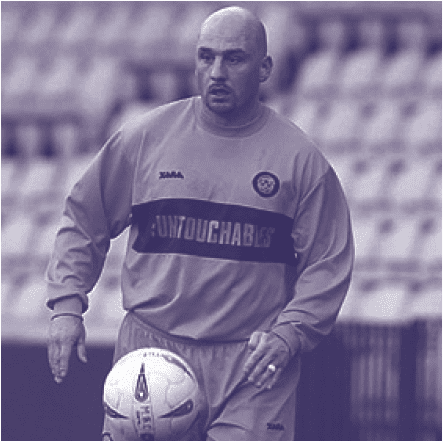
A brief sojourn at Brechin in 2005 under Ian Campbell and then Michael O'Neill added yet more managers to the already impressive roll call that Gary had played for over the years. Glebe Park was to be Gary's final senior football posting other than helping a friend out by playing a couple of games for Albion Rovers in 2006. His playing career finished not far from home with the Gowfers of Carnoustie Panmure in 2007.
The list of managers Gary has played under includes some of the finest and most charismatic in Scottish football history. Starting out with the intensity of Jim McLean before Cup glory under the zen-management style of Ivan Golac, Gary has also developed as a player and as a person through the mentoring of Scotland managers Craig Brown and Walter Smith. He has had the privilege of living a childhood dream by being signed by his former United idols Paul Hegarty and Paul Sturrock. All of these individuals have displayed different approaches but it is clear that Gary has taken something from each of them, good and bad, and used that to inform his own coaching and management style. Some are now fellow managers in the SPFL and Gary believes it is important to keep good relationships in the game. "Football is a small world and I'd like to think I have good relationships with most people in the game. As your career develops you cross paths with a lot of people and you never know who you might be working with in the future.”
With his boots now hanging on the peg Gary entered the next stage of his career in 2007 when he began to build a successful career in coaching and management. Let's just say there have been a few more twists and turns along the way to his arrival at Station Park late last year.
Gary was in conversation with Louise Huggan for the match day programme v Peterhead on 2 April 2016. Part two of the conversation, looking at Gary's management career, will feature in the programme v Airdrieonians on 16 April 2016. It will also be available online at www.forfarathletic.co.uk
Our site uses cookies. If you're not happy about that please hit your back button.
© 2025 Forfar Athletic Football Club.
All rights reserved.
This website, and its component parts, are the property of Forfar Athletic Football Club (unless otherwise stated), and are protected by the copyright laws of the United Kingdom and under international law. The website may not be copied, duplicated, stored or otherwise reproduced, in whole or in part or parts, without the express written consent of the Site Managers.
